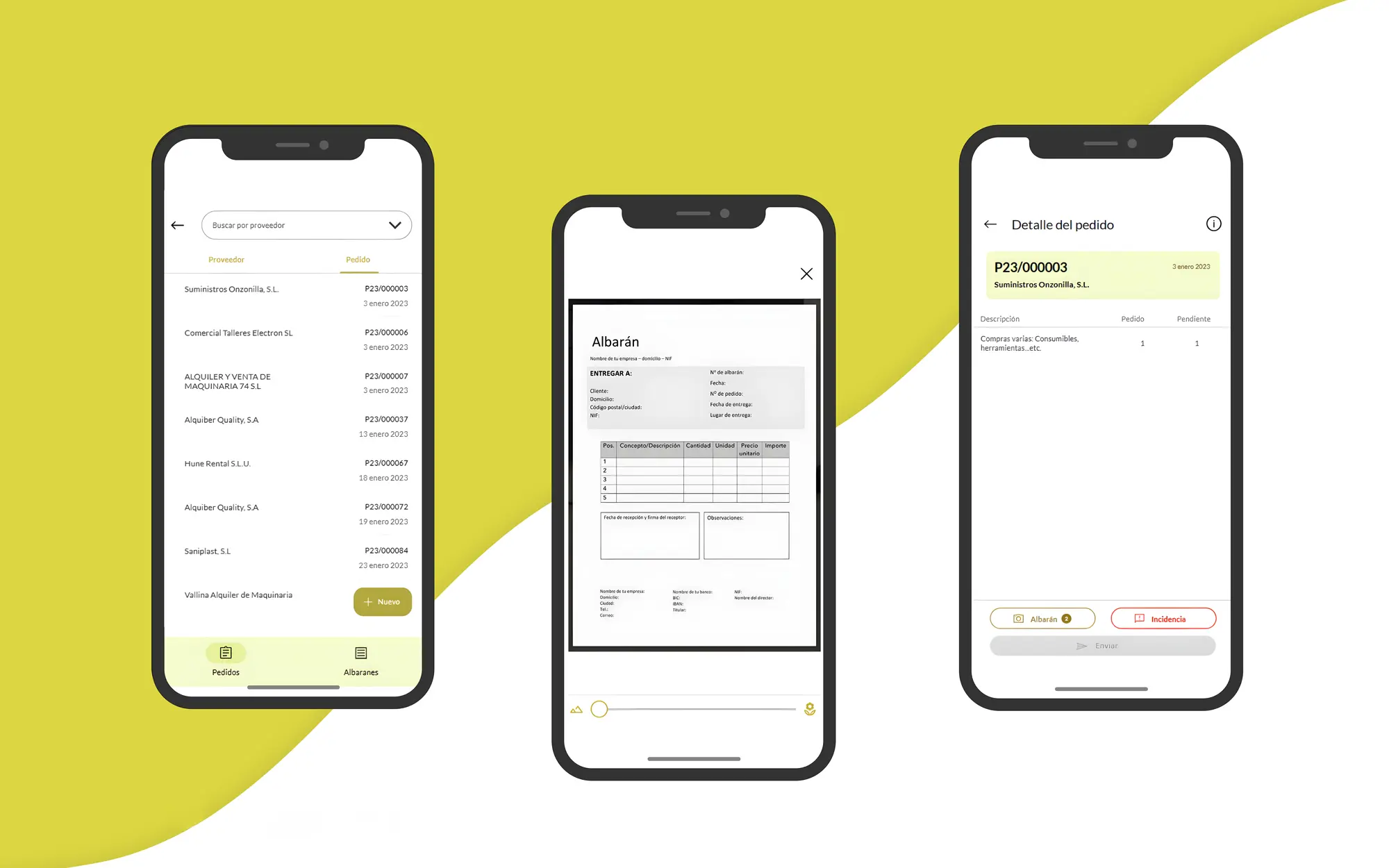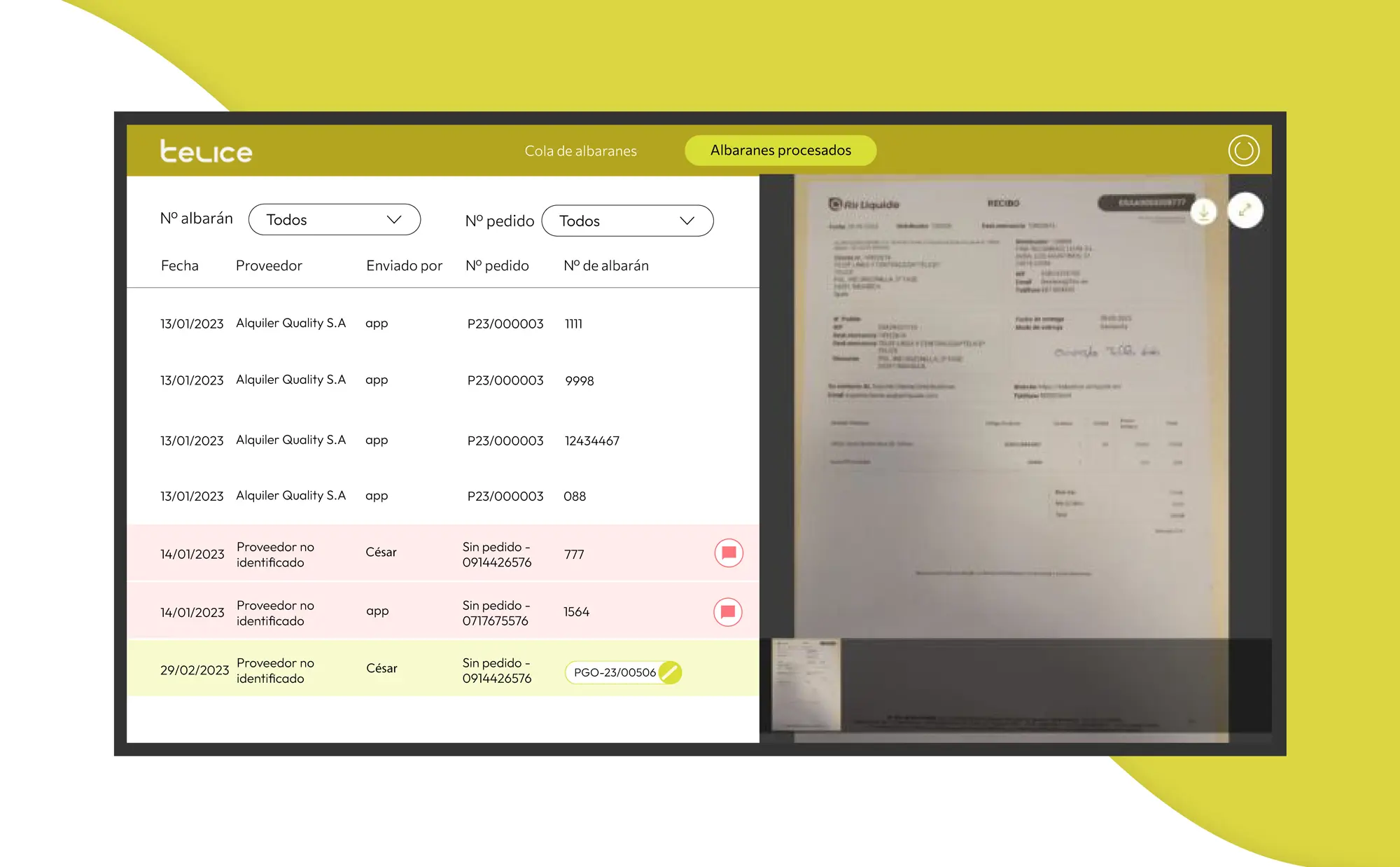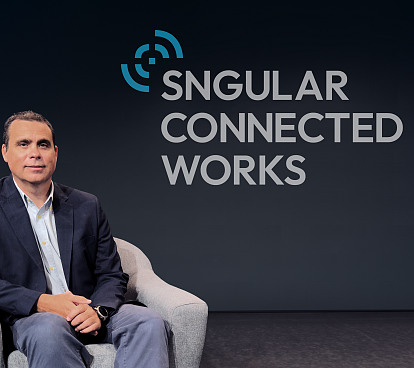
Telice reduces order management time from 21 days to 24 hours with Power Platform
October 2, 2024
Taking railway technology on the ground to the next level
Telice is a leading Spanish company specializing in the contracting of works and services for the railway network. Founded in 1973, Telice has solidified its market position through its ability to deliver innovative and high-quality solutions in the field of railway infrastructure.
Headquartered in León, Spain, Telice primarily operates within Spanish territory, where it has developed numerous large-scale projects. The company has also started expanding internationally by participating in select projects outside of Spain. Living up to its motto, "technology on the ground," Telice provides comprehensive services in maintenance, electrification, civil protection systems, and the integration of railway signaling and communication systems. The company employs about 250 people.
Transforming order reception with a mobile solution and automation
Telice identified an area for improvement in the order reception process at their worksites. The process they used for receiving orders and validating delivery notes was time-consuming, often leading to issues with delivery claims or invoicing.
The process began with the placement of a material order. Suppliers would send the materials to worksites located across the country, where a designated person was responsible for receiving them. Subsequently, the related documentation was sent in paper format to the central offices for registration in the ERP system, which could take up to three weeks. This led to delayed availability of information, an increased risk of loss or damage to the documentation, and the inability to manage claims in a timely manner, negatively affecting purchase control and the timely completion of financial closings.
To address this issue, Telice, in collaboration with SNGULAR, redesigned the order receiving process, incorporating automation into much of the procedure. A mobile PowerApp was developed, which is used by the site managers to manage order receiving and record delivery notes more efficiently. This solution automatically syncs active orders from each worksite with the ERP, allowing users to review pending orders, check details, report issues, receive orders (partially or completely), take photos of potential issues, and record delivery notes.
The information generated from the mobile application is consolidated into a second PowerApp, designed for management and used by the central administration department in web format. This solution allows for managing and analyzing the data received from the worksites, providing clearer insight and improved control over the orders placed.

Both the mobile application and the management application have been developed using Microsoft’s Power Platform, the platform for Microsoft's low-code solution development, which includes PowerApps, Power Automate, and Power BI. Telice utilizes the Microsoft 365 ecosystem for office and productivity tools at workstations, which led to the decision to use Power Platform since it is included in this ecosystem. Using this suite provides a set of tools for agile and flexible application and automation development, allowing not only for rapid implementation but also offering high scalability to adapt to future needs.
As Cesáreo González Álvarez, CEO and founder of Telice, explains, "For us, it was very challenging to keep the order information updated and available in a timely manner, leading to delays in inventory management and decision-making. With the implementation of this application, we aim to reduce the time from when an order is placed to when the information is registered in the ERP and available in the system. This will allow for faster and more accurate data updates, improving operational efficiency and facilitating more effective resource management."
The implementation of these solutions has enabled a more agile update of information, significantly improving the control and visibility of orders. Site managers now have access to all available order information, which facilitates supervision and management, thus optimizing the overall operation of Telice.

Power Platform: Microsoft’s low-code platform
Thanks to Power Platform, Telice has efficiently developed a customized solution, significantly reducing both development time and associated costs. This low-code platform has not only improved responsiveness and adaptability to changes in the business environment but has also enabled agile and effective implementation.
Low-code applications offer numerous possibilities and advantages that are particularly valuable for organizations.
Fast development and cost savings
One of the main benefits is the rapid development. Using a graphical interface for development simplifies the process and reduces the time needed to build and deploy applications. The predefined components offered by Microsoft enable customization without the need to write extensive lines of code. In Telice's case, the use of Power Platform facilitated the deployment of the application in approximately two months, demonstrating remarkable efficiency compared to traditional methods.
In addition to the speed of development, low-code applications allow for a significant reduction in development and maintenance costs. By requiring less time and resources, there is less need for large development teams, resulting in substantial savings. This translates into the ability to use resources more efficiently and cost-effectively.
Independence from specialized developer profiles
Another significant advantage of low-code platforms is their independence from highly specialized developer profiles.
"This tool allows individuals without formal development training, including those with functional or strategic knowledge, to participate in the design and creation of the application. This facilitates the integration of specific business knowledge and reduces reliance on specialized developers, while minimizing bottlenecks in the development process," explains Cesáreo González.
By enabling citizen developers, that is, users without programming experience—to create and customize applications according to their specific needs, closer collaboration is fostered between IT teams and business users. This not only improves the alignment of solutions with the specific problems that need to be addressed but also accelerates the development and implementation of effective solutions tailored to business needs.
Easy integration with other Microsoft tools
As part of the Microsoft 365 ecosystem, all elements are fully integrated, which represents a key benefit for Telice. The company already uses Microsoft Office, Microsoft Teams, and Viva Engage, so the interoperability of all these applications along with Power Platform offers a significant advantage in day-to-day tasks.
As Fabián Sidonio Rodrigues, Assistant Project Manager at Telice, points out, "The connection with data sources such as Microsoft Excel, SharePoint, SQL Server, and Dynamics 365 is much easier with Power Apps compared to external platforms." This ease of integration not only simplifies data access and management but also optimizes processes by allowing for effective combinations with Power Automate.
Maintenance, scalability, and innovation
Power Platform solutions allow for simpler updates and maintenance, as changes can be made by adding or modifying specific components without the need to rewrite large volumes of code.
For Telice, this means they can develop new automations and functionalities incrementally, without relying on external or third-party development teams. The low-code platform, operating under the application platform as a service (aPaaS) model, facilitates the continuous integration of new elements and possibilities. This not only allows for the ongoing iteration and improvement of existing applications but also the creation of new applications that address specific problems and add value to the business.
Furthermore, Telice is now able to leverage the extensive documentation and resources available from Microsoft, which support both the development and management of applications. This provides a solid foundation for continuous innovation and adaptation to new business needs.
In summary, low-code technology refers to the use of platforms to develop and deploy solutions (applications and automations) in an agile and rapid manner. With a simple interface and unified logic, along with easy connections to multiple data sources, low-code platforms provide an efficient and flexible solution to meet contemporary business needs.

Gradual implementation strategy and change management
One of the main challenges Telice is facing is the deployment of the new solution within the work teams, ensuring effective user adoption. In this case, they are confronting a cultural change that requires a strategic approach to ensure a smooth transition.
As Cesáreo González explains, "Given that some users have lower digital maturity, we have opted for a phased implementation of the application. This approach involves deploying the solution in stages, starting with small teams or departments." Beginning with smaller groups allows for the collection of valuable feedback and the adaptation of the application based on the needs and learnings obtained at each stage.
Telice's rollout strategy includes ongoing training and support during the initial learning curve. This period is crucial for users to become familiar with the new tool, understand its functionality, and adapt to the new processes. As each team gains experience and confidence, adjustments and improvements can be made based on their feedback.
In Cesáreo González's words, "Once the initial teams have successfully integrated the application and the process has been optimized according to the feedback received, we can proceed with the deployment of the solution in other areas of the organization." This gradual approach facilitates smoother adoption, reduces resistance to change, and ensures effective integration of technology throughout the organization.
Telice reduces order management time from three weeks to one day
Thanks to the implementation of the solution based on Power Platform, Telice has achieved a remarkable reduction in order processing time, going from three weeks to just one day. This improvement not only accelerates the management of orders and delivery notes but also enables a more agile and efficient overall operation. The tool has optimized operational processes, facilitating a quicker response to business needs.
Not only have initial expectations been met, but objectives have also been exceeded, establishing a solid foundation for future innovations and improvements.
"SNGULAR suggested that we use Microsoft Power Platform, and it has proven to be the right solution. The platform has met our expectations by significantly reducing processing time. Additionally, it has provided us with the autonomy we were seeking, allowing us to continue, modify, and adjust the solution easily, without relying completely on a vendor or partner," González states.
In essence, the implementation of Power Platform and the collaboration between Telice and SNGULAR have provided the León-based company with an effective solution that has not only transformed its operational processes but also opened new possibilities for continuous innovation and future growth.
Our latest news
Interested in learning more about how we are constantly adapting to the new digital frontier?

Corporate news
January 13, 2025
Extend Functionality and Accelerate Development with Mendix

Tech Insight
December 19, 2024
Contract Testing with Pact - The final cheetsheet

Insight
December 10, 2024
Groundbreaking technologies today that will reshape the innovation landscape in 2025

Corporate news
December 4, 2024
Launched ConnectedWorks to Revolutionize Construction Site Management
